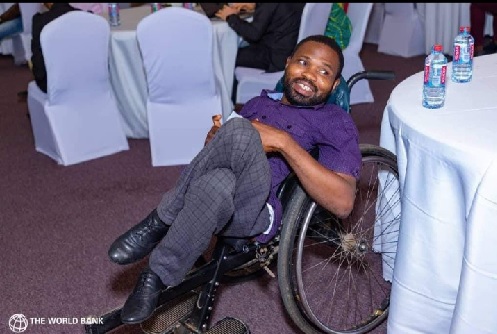An IT Assistant at the University of Ghana’s Information Technology Directorate (UGITD), Joseph Gmakawoma, has asserted that discrimination against persons with disabilities on campus stems more from institutional design flaws than from the actions of individuals.
Speaking on Campus Exclusive on Radio Univers on Monday, October 20, Mr. Gmakawoma noted that while many of the University’s new and existing facilities appear inclusive, a lack of attention to critical accessibility details often renders them unusable for students with special needs.
He cited the newly constructed hotspot centres and the Balme Library as examples of this systemic neglect.
“To get to the new hotspot centre, there’s an open gutter that a wheelchair can’t cross, and it’s dangerous for visually impaired people,” he explained. “If they really want it to be accessible, they need to cover that gutter.”
Mr Gmakawoma added that although ramps have been installed at the Balme Library, they remain largely ineffective.
“They finally put in ramps, but you still can’t actually use them to get into the building near the fountain — you still can’t climb up there,” he said.
He argued that the University’s approach focuses on appearing inclusive rather than ensuring true accessibility, stressing that “tiny details” such as ramps and pathways make the biggest difference for persons with disabilities.
“The University is trying to look inclusive, but they don’t pay attention to the small details. Those tiny details are actually the big obstacles we’ve been complaining about all this time,” he said.
To achieve genuine inclusivity, he urged the University to make all campus spaces — including housing and learning facilities — fully accessible.
“If the University of Ghana is serious about inclusivity, they need to go beyond putting ramps at the main entrance of the traditional halls. Once inside, students must be able to branch off to any assigned block or room without needing help,” he said.
Mr Gmakawoma also called on the Government to enforce national accessibility standards across all educational institutions, both public and private.
He stressed that accessibility is key to equity in education.
“People with disabilities should be able to go anywhere without needing someone to take their message or deliver it for them. Beyond free education, we need full access to facilities so that everyone can truly compete with their able-bodied colleagues,” he concluded.

